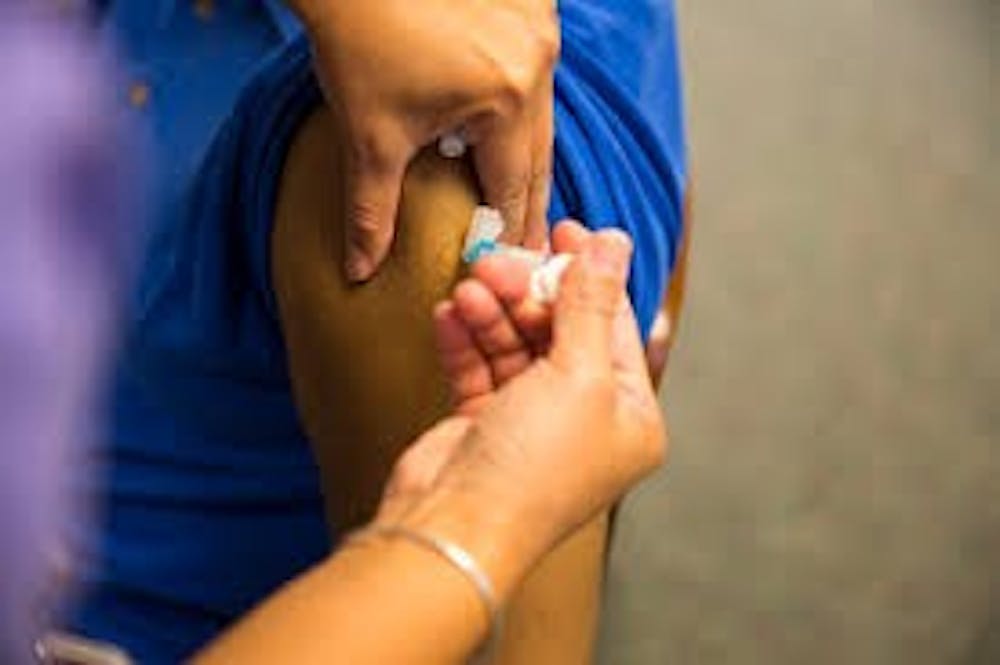The flood of false information about vaccines spreading through social media has contributed to decreases in vaccination rates and increases in the number of cases of preventable communicable disease, according to Simon Stevens, chief executive officer of the National Health Service (NHS) in England.
One disease of particular concern is measles. The disease is preventable through the measles, mumps and rubella (MMR) vaccine, but the proportion of children receiving the vaccine has been declining since 2015, according to the NHS. Recently, the number of measles cases in Britain has increased almost three-fold, from around 250 in 2017 to over 900 in 2018.
A study conducted by the Royal Society for Public Health found that over 91 percent of parents in the United Kingdom considered vaccines to be “important for their child(ren)’s health,” but that there was also more negative reporting about vaccines on social media than positive reporting.
While there was also low trust among the respondents in information found on social media, the report noted the role of the illusory truth effect, where a message repeated frequently enough will begin to be believed even if individuals initially recognized that it is untrue.
One incident often considered to have played a significant role in the modern anti-vaccination movement was the publishing of a fraudulent research paper purporting a link between the MMR vaccine and autism.
In 1998, a study was published in the medical journal The Lancet, with Andrew Wakefield as lead author. The study, which examined 12 children with gastrointestinal and developmental issues, claimed that in eight of the 12, the MMR vaccine was associated with onset of behavioral disorders, including autism, as well as gastrointestinal problems.
Researchers noted some immediate issues with the paper, including its small sample size, lack of appropriate controls and the inability of other scientists to reproduce Wakefield’s results. Later, investigators found that Wakefield had misrepresented some facts in every child’s case. For instance, journalist Brian Deer discovered that dates of onset of behavioral symptoms reported in the paper were not consistent with parents’ accounts or medical records for at least seven of the 12 children.
Deer also revealed that Wakefield had financial conflicts of interest, having been hired by a lawyer who wanted to prepare a lawsuit against MMR vaccine manufacturers.
The 1998 study was eventually retracted, and Wakefield’s misconduct led to his removal from the medical register in the United Kingdom.
Wakefield’s work, and statements he made regarding the MMR vaccine and autism after the publication of his article, received a notable amount of media attention.
MMR vaccine coverage rates subsequently dropped, and although they have returned to approximately pre-controversy levels in recent years, in England they are still under the 95 percent level recommended by the World Health Organization for effective herd immunity, which is the protection of unvaccinated individuals by the high level of vaccine coverage in their population. Herd immunity is particularly important for individuals who cannot be vaccinated due to age or health reasons.
A study published recently, which followed over 650,000 children in Denmark, is the latest to demonstrate that there is no link between the MMR vaccine and autism. Previous notable studies include one following over 95,000 children in the United States and another following over 400 children in Japan, neither of which found any link between the MMR vaccine and autism.
Nevertheless, misinformation persists, with social media serving as a notable platform for the spread of false information about vaccine ingredients and risks, among others.
The report from the Royal Society for Public Health recommended steps that could be taken by social media platforms, such as prioritizing credible rather than popular sources on lists of suggested pages. It also cautioned recommendations for the government and public health organizations, such as education campaigns to counteract misinformation. In general, the Society advised that public access to accurate messaging about vaccines is critical to maintain the progress made in combating infectious disease — gains that threaten to be eroded.





